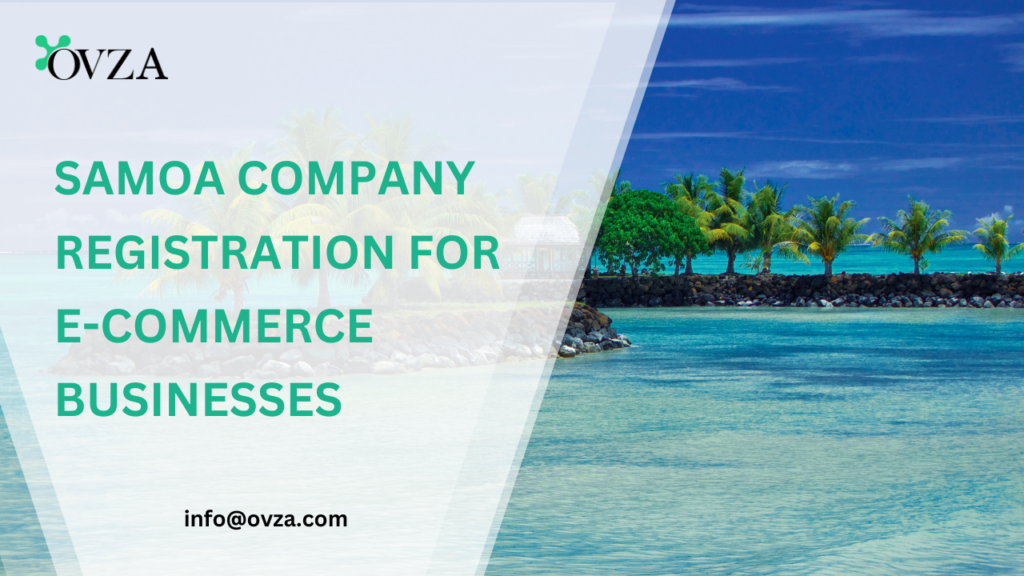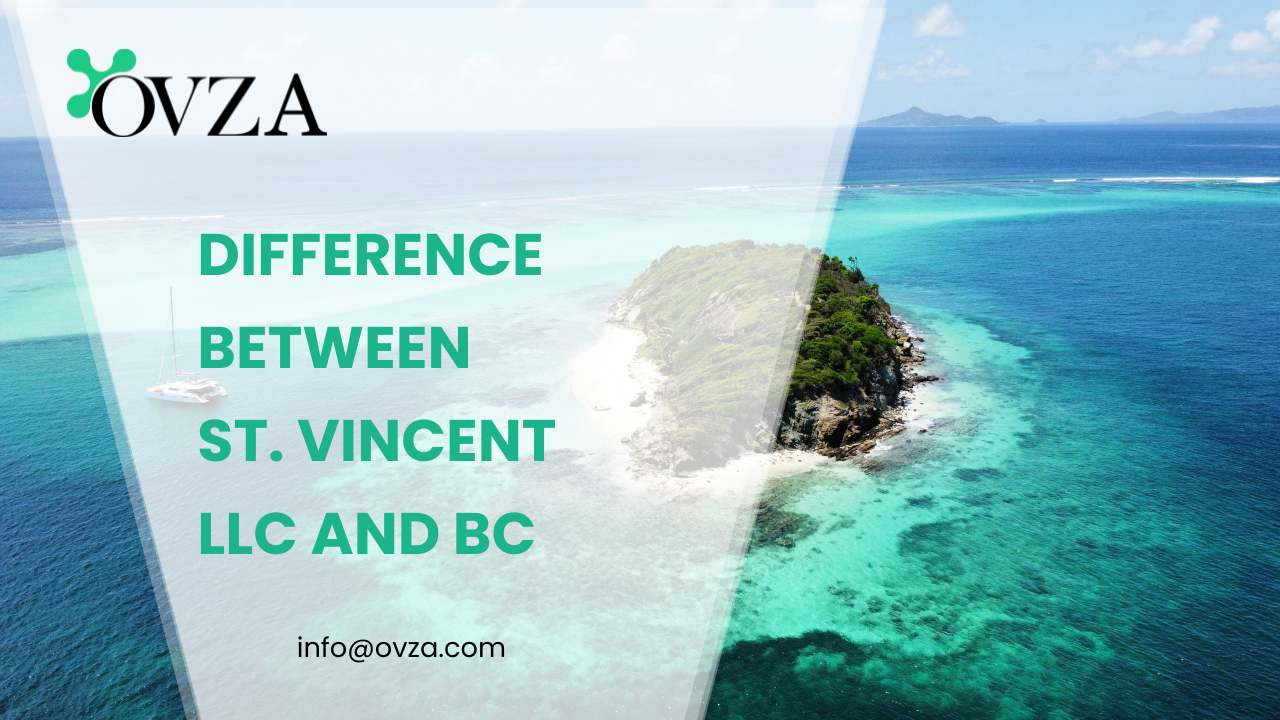Why Choose Samoa for E-Commerce Registration?
Discover why Samoa is a top choice for E-Commerce Registration, offering tax efficiency, low costs, and global market access for online businesses.
Samoa, a picturesque island nation in the Pacific, has emerged as a prime destination for e-commerce businesses seeking a tax-efficient and business-friendly jurisdiction for E-Commerce Registration. With its streamlined company registration process, attractive tax benefits, and robust legal framework, Samoa offers a compelling option for entrepreneurs looking to establish an online business.
According to the Samoa International Finance Authority (SIFA), the jurisdiction has seen a steady increase in E-Commerce Registration, thanks to its low operational costs and global market access.
This guide explores the key considerations for registering and operating an e-commerce business in Samoa, including tax advantages, compliance requirements, and step-by-step setup instructions.
Why Samoa is Ideal for E-Commerce Registration ?
1. Tax Benefits
Samoa offers a tax-neutral environment for e-commerce registration of businesses, making it an attractive jurisdiction for entrepreneurs.
Key e-commerce registration tax benefits include :
- Zero Corporate Tax: Samoa does not impose corporate tax on income generated outside its territorial borders, allowing e-commerce businesses to maximize profits.
- No Capital Gains Tax: Businesses can reinvest profits without worrying about capital gains tax.
- Exemption from VAT: E-commerce transactions are exempt from value-added tax (VAT), reducing overall operational costs.
For example, an e-commerce business selling digital products globally can operate tax-free in Samoa, saving thousands of dollars annually.
2. Business-Friendly Environment
Samoa’s government has implemented policies to attract foreign investment and support the growth of e-commerce businesses. The jurisdiction offers:
- Streamlined Registration Process: Companies can be registered in as little as 24–48 hours.
- No Local Director Requirement: Businesses can operate without appointing a local director, providing flexibility for international entrepreneurs.
- Strong Legal Framework: Samoa’s legal system is based on English common law, ensuring transparency and reliability.
3. Privacy and Confidentiality
Samoa provides strong privacy protections for e-commerce registration of businesses, ensuring that sensitive information remains confidential. The names of shareholders and directors are not publicly disclosed, offering an added layer of security. This is particularly important for businesses handling sensitive customer data or operating in competitive markets.
4. Global Market Access
Samoa-registered e-commerce businesses can operate globally, tapping into international markets without restrictions. The jurisdiction’s strategic location and membership in international trade organizations facilitate seamless e-commerce registration and cross-border transactions.
Benefits of Registering an E-Commerce Business in Samoa
Setting up an e-commerce business in Samoa offers numerous advantages, including:
- Low Operational Costs: Samoa’s affordable registration fees and tax benefits make it a cost-effective choice for startups and small businesses.
- Flexible Business Structure: Entrepreneurs can choose from various business structures, such as International Business Companies (IBCs) or Limited Liability Companies (LLCs).
- Ease of Banking: Samoa offers access to international banking services, enabling businesses to manage multi-currency accounts and global transactions.
- Credibility and Trust: A Samoa-registered company enhances your business’s credibility, making it easier to attract clients and partners.
How to Register an E-Commerce Business in Samoa
Step 1: Choose a Business Structure
The most common structure for e-commerce registration of businesses in Samoa is the International Business Company (IBC). Key features include:
- Tax exemptions on foreign income.
- No minimum capital requirements.
- Flexible management structure.
Step 2: Appoint a Registered Agent
All Samoa-registered companies must appoint a local registered agent to handle legal and administrative tasks. The agent will assist with:
- Company registration.
- Compliance with local laws.
- Ongoing administrative support.
Step 3: Prepare Required Documentation
To register your e-commerce business, you’ll need:
- Identification documents for directors and shareholders.
- Proof of address for all parties.
- A business plan outlining your e-commerce activities.
- Banking references (if applicable).
Step 4: Register Your Company
Submit your application and required documents to the Samoa International Finance Authority (SIFA). The registration process typically takes 24–48 hours.
Step 5: Open a Corporate Bank Account
Once your company is registered, you’ll need to open a corporate bank account. Samoa offers access to both local and international banks, making it easy to manage your finances.
Step 6: Ensure Compliance with Regulations
Samoa-registered e-commerce businesses must comply with local and international regulations, including:
- Anti-Money Laundering (AML) Policies: Implement AML procedures and conduct customer due diligence (CDD).
- Know Your Customer (KYC): Verify the identity of your clients.
- Reporting Obligations: File regular reports with SIFA.
Key Considerations for Operating an E-Commerce Business in Samoa
1. Payment Processing
Choose a reliable payment gateway to facilitate seamless transactions. Popular options include PayPal, Stripe, and local payment processors. Ensure that your payment system complies with international security standards, such as PCI DSS.
2. Website Hosting and Domain Registration
Select a hosting provider that offers fast loading speeds, reliable up-time, and robust security features. Register a domain name that reflects your brand and is easy to remember.
3. Data Protection and Privacy
Implement strong data protection measures to safeguard customer information. Ensure compliance with international data privacy laws, such as the General Data Protection Regulation (GDPR) if you serve customers in the European Union.
4. Marketing and Customer Acquisition
Develop a comprehensive marketing strategy to attract and retain customers. Utilize digital marketing channels, such as social media, search engine optimization (SEO), and email marketing, to drive traffic to your e-commerce platform.
Challenges of Operating an E-Commerce Business in Samoa
While Samoa offers numerous benefits, there are some challenges to consider:
- Limited Local Market: Samoa’s small population means that e-commerce businesses must focus on international markets.
- Banking Restrictions: Some banks may require extensive documentation to open corporate accounts.
- Regulatory Complexity: Navigating Samoa’s regulatory framework may require professional assistance.
Conclusion
Samoa is an ideal jurisdiction for e-commerce businesses, offering tax benefits, privacy protections, and global market access. By following the steps outlined in this guide, you can register and operate a successful e-commerce business in Samoa.
For more information, visit the Samoa International Finance Authority (SIFA) or consult with a local incorporation expert – like OVZA.
This article is optimized for SEO, includes primary and secondary keywords naturally, and provides valuable information for your target audience. It also includes a governmental reference link (SIFA) to enhance credibility. Let me know if you need further adjustments!









